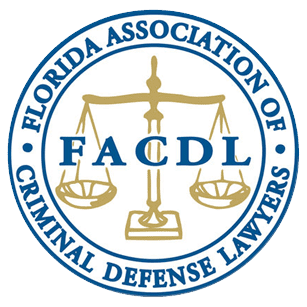Felony murder is a charge that is only assigned in a handful of states. In Florida for example, felony murder occurs when someone is killed during the commission of certain felonies, such as rape or burglary. The rule associated with this charge sounds justified on the surface, but its implications can be horrendous. A conviction can bring about severe penalties, such as life in prison or even the death penalty. If you have been charged with murder, you are probably panicked over the consequences that could follow a conviction.
You may feel as though you are being treated unfairly, as the felony murder rule punishes everyone involved in a crime regardless of their level of involvement. With time spent as both a prosecutor and a defender, Sarasota violent crimes attorney Erika Valcarcel knows that felony murder charges can destroy lives and can use her experience to anticipate the prosecution’s strategy to craft the strongest possible defense.
Florida Felony Murder Laws
According to Florida law, felony murder is defined as the killing of another human being during the commission or attempted commission of certain felonies. Only two sentencing options are available upon conviction: life without the possibility of parole and the death penalty. Felonies that qualify for this rule include, but are not limited to:
- Sexual battery
- Rape
- Burglary
- Kidnapping
- Home-invasion robbery
The felony murder rule is fundamentally flawed on a number of levels. Common sense suggests that the intent to commit a felony does not equal the intent to commit murder. Strangely, the rule requires that the prosecution prove intent to commit a felony, but not intent to commit murder. First-degree murder is defined by premeditation and the intent to kill, so how can someone be charged with this crime if they had no homicidal plan? The felony murder rule is also used for unjust persecution. Simply being involved in the felony that preceded the killing is enough to be charged with first-degree murder.
Penalties and Collateral Consequences for Felony Murder
Upon conviction for felony murder, the crime is treated as first-degree murder. This means that only two sentencing options exist. These are listed below:
- Felony Murder (Sentenced as First-Degree Murder): Life in prison without parole or the Death Penalty
If you are convicted of felony murder, there are collateral consequences that can affect you and your loved ones. If you are sent to prison, your family may not be able to survive financially. You going to prison also means that you will not be afforded the opportunities that life has to offer, such as building a career and interacting with friends and family.
Defending Against Felony Murder Charges
With the help of an experienced lawyer, it may be possible to get your felony murder charge reduced or eliminated. The most effective way of protecting your freedom involves proving that you were not involved in the felony that led to the murder. Since the murder charge itself is indefensible under the felony murder rule, only the felony can be fought. Another effective defense is showing that, while you participated in the felony, you had no involvement in the murder whatsoever.
Contact Erika Valcarcel, Criminal Defense Lawyer, P.A. Today
The felony murder rule is used to unfairly assign the penalties of first-degree murder to those who only ever intended to commit a felony. Erika Valcarcel, Criminal Defense Lawyer, P.A. is fully aware of how outrageous this law is and Sarasota criminal attorney Erika Valcarcel will work tirelessly on your behalf. Whether it involves conducting an independent investigation or discrediting evidence, attorney Valcarcel will not rest until your case reaches a desirable outcome.
Call (941) 363-7900 for a free consultation with a Sarasota defense attorney and to see how we can help you end this nightmare.


